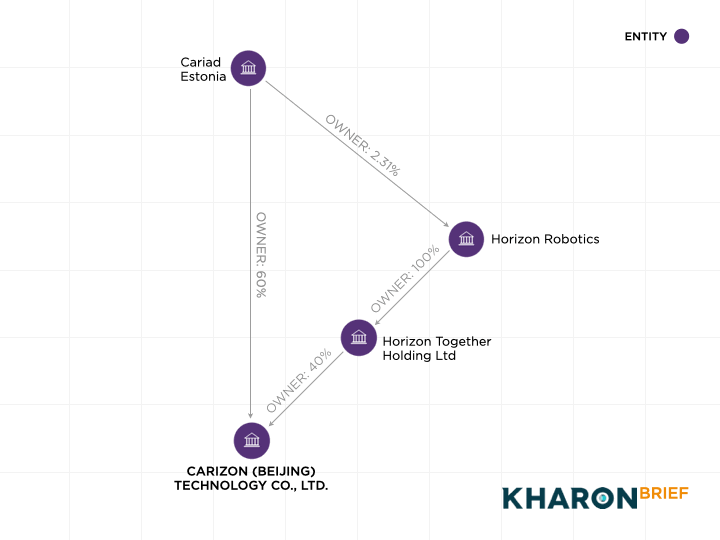The EU Commission in January called on member states to monitor and review outbound investments in companies outside the Union that develop sensitive technologies and assess their potential risks to the EU’s “economic security.”
The EU’s process promises to be a lengthy one. In the meantime, companies should prepare for the possible new restrictions on outbound investment that could follow—like those that the United States implemented in January.
What to know: The Commission’s focus is on investments in non-EU companies that work in semiconductors, artificial intelligence and quantum computing, which it suggested could threaten the EU’s “role as a technology leader.” A separate white paper also cited the risk that such investments could support the development of “military and intelligence capabilities of actors that may use them to undermine international peace and security.”
The Commission therefore asked EU countries to review a range of transactions by their registered companies into foreign entities since at least Jan. 1, 2021, and report any risks they identify. Countries are expected to submit a progress report by July 15 and a final report by June of next year.
The EU’s process promises to be a lengthy one. In the meantime, companies should prepare for the possible new restrictions on outbound investment that could follow—like those that the United States implemented in January.
What to know: The Commission’s focus is on investments in non-EU companies that work in semiconductors, artificial intelligence and quantum computing, which it suggested could threaten the EU’s “role as a technology leader.” A separate white paper also cited the risk that such investments could support the development of “military and intelligence capabilities of actors that may use them to undermine international peace and security.”
The Commission therefore asked EU countries to review a range of transactions by their registered companies into foreign entities since at least Jan. 1, 2021, and report any risks they identify. Countries are expected to submit a progress report by July 15 and a final report by June of next year.
How it will work: The reviews, the Commission said, should include only significant transactions that are likely to enable the development or the transfer of critical technologies or knowledge.
Among them:
It’s up to each EU state, though, to design its own review process. Governments can ask companies and individuals to submit information on these transactions voluntarily, or to establish a mandatory framework for them to do so.
Of note: The Commission said the review should be “country-neutral” but urged that, in assessing the risk profiles of outside companies, EU states consider “the past behaviour of the country concerned, including violations of the UN Charter.”
That could signal particular scrutiny toward transactions in nations like Israel and Russia, which the UN has condemned for violations of the charter in Gaza and the West Bank and in Ukraine, respectively. The EU has also sanctioned Belarus, Iran and North Korea for supporting Russia’s violations on the battlefield and has called China to address human rights issues in Xinjiang.
Example: Carizon (Beijing) Technology is a joint venture that develops autonomous vehicle technology. While the EU did not single out China as a risky jurisdiction under its recommendation, Carizon's development of this advanced technology could fall under the scope of the review.
Carizon’s majority shareholder is Cariad Estonia, an automotive software company that owns a 60% controlling stake. The other ultimate partner in the venture is Horizon Robotics (9660.HK), a Cayman Islands-incorporated company that trades on the Hong Kong Stock Exchange, but its primary business activity is in mainland China.
Horizon Robotics, which has a market cap north of $10 billion USD, could carry its own investment risks, because it designs chips to support its software that powers AI solutions for self-driving vehicles. It is considered a national champion in China’s push for AI and semiconductor independence, and it plays a key role in China’s ambition to localize automotive supply chains and reduce dependency on foreign chipmakers.
Cariad and a prominent Western tech company are among its shareholders.
Among them:
- The acquisition of or a controlling stake in a company that develops any of the three technologies in question;
- The absorption of other companies;
- Company mergers;
- The transfer of assets that are necessary to carry out one of the economic activities of concern;
- The establishment of a new company, including joint ventures and subsidiaries;
- The provision of capital to companies that develop any of the three indicated technologies.
It’s up to each EU state, though, to design its own review process. Governments can ask companies and individuals to submit information on these transactions voluntarily, or to establish a mandatory framework for them to do so.
Of note: The Commission said the review should be “country-neutral” but urged that, in assessing the risk profiles of outside companies, EU states consider “the past behaviour of the country concerned, including violations of the UN Charter.”
That could signal particular scrutiny toward transactions in nations like Israel and Russia, which the UN has condemned for violations of the charter in Gaza and the West Bank and in Ukraine, respectively. The EU has also sanctioned Belarus, Iran and North Korea for supporting Russia’s violations on the battlefield and has called China to address human rights issues in Xinjiang.
Example: Carizon (Beijing) Technology is a joint venture that develops autonomous vehicle technology. While the EU did not single out China as a risky jurisdiction under its recommendation, Carizon's development of this advanced technology could fall under the scope of the review.
Carizon’s majority shareholder is Cariad Estonia, an automotive software company that owns a 60% controlling stake. The other ultimate partner in the venture is Horizon Robotics (9660.HK), a Cayman Islands-incorporated company that trades on the Hong Kong Stock Exchange, but its primary business activity is in mainland China.
Horizon Robotics, which has a market cap north of $10 billion USD, could carry its own investment risks, because it designs chips to support its software that powers AI solutions for self-driving vehicles. It is considered a national champion in China’s push for AI and semiconductor independence, and it plays a key role in China’s ambition to localize automotive supply chains and reduce dependency on foreign chipmakers.
Cariad and a prominent Western tech company are among its shareholders.

Backdrop: While the EU Commission will wait for countries’ reports before it takes action, the United States offers a comparison point.
The new U.S. outbound investment rule aims to restrict the flow of U.S. capital into Chinese companies operating in the same industries as the EU called to review: semiconductor manufacturing, artificial intelligence and quantum computing. Violations of the U.S. rule can trigger civil or criminal action.
In February, the Trump administration announced its intent to expand such restrictions to cover other industries, including aerospace and biotechnology, and potentially other “foreign adversaries,” such as Cuba, Iran, Russia and Venezuela.
Read or watch more:
The new U.S. outbound investment rule aims to restrict the flow of U.S. capital into Chinese companies operating in the same industries as the EU called to review: semiconductor manufacturing, artificial intelligence and quantum computing. Violations of the U.S. rule can trigger civil or criminal action.
In February, the Trump administration announced its intent to expand such restrictions to cover other industries, including aerospace and biotechnology, and potentially other “foreign adversaries,” such as Cuba, Iran, Russia and Venezuela.
Read or watch more:







